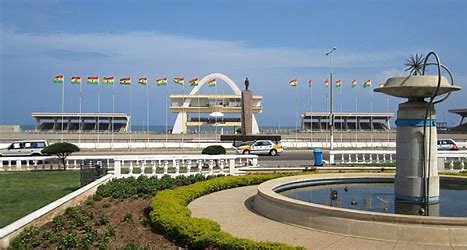From the 3rd ~ 4th century, it was a part of the Ghana Empire, in the 13th century, the Aken and Mosi people established kingdoms in the north and south, and in 1471, the Portuguese colonists invaded and plundered gold, and the coast was called “Gold Coast”. In 1595, the Dutch and England invaded. In 1844, the coast was occupied by the British, and in 1901 the whole territory became a British colony, named “British Gold Coast”.
Ghana declared independence on March 6, 1957, and was founded by the merger of the former British Gold Coast and the “British Togoland” taken from Germany after World War I, becoming the first independent country among the British colonies in Africa. Its first Prime Minister, Nkrumah, established the Republic of Ghana in 1960 and served as its first President.
Nkrumah was one of the leading advocates of Pan-Africanism. After he was overthrown in a coup d’état in 1966, Ghana underwent a series of coups. The 1981 constitution was repealed and the formation of political parties was banned. In 1992, a new constitution was enacted, and the multi-party system was restored again. Many tribes still live in a state of “stateless society”. Other Ghanaian allegiances are to an Ashanti king (known as Asantehene) who has lost real power, believing that there is only “Ashanti nationalism” and no “Ghanaian nationalism.”
Ashanti is located in south-central Ghana and was formerly a large West African country with its capital in Kumasi. Later, it was accepted as a colony by the British, and gradually went north to conquer Ashanti, forming the prototype of today’s Ghana. The Ashanti Chiefs were also expelled in 1902, but the Ghana region became more difficult to govern, so the British welcomed the Ashanti Monarch back in 1924 and held the “Ashanti Restoration Ceremony” in 1938 to restore the indirect rule of the “Ashanti Council of Chiefs”.
When Ghana became independent after World War II, the British repeatedly asked for Ashanti to become independent, but the Ashanti Native King still holds a high status in Ghana. The throne of Ashanti has been passed down to the present day. Succeeded to the throne in 1999 by the current Turkish king, Otunfuvo Nana Osai Tutu II, who holds a doctorate from the United States, is known as the “modern-day King Solomon”.
